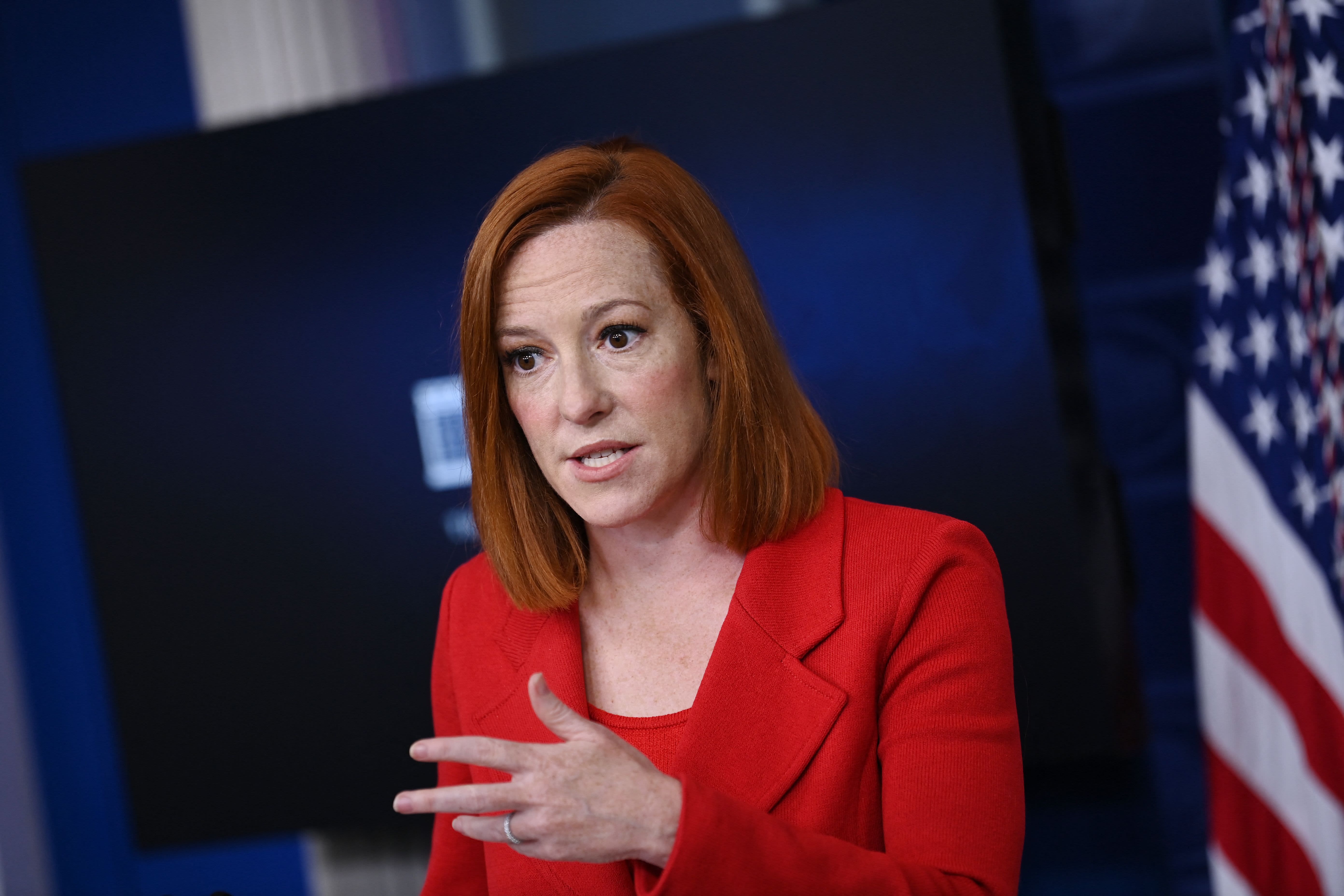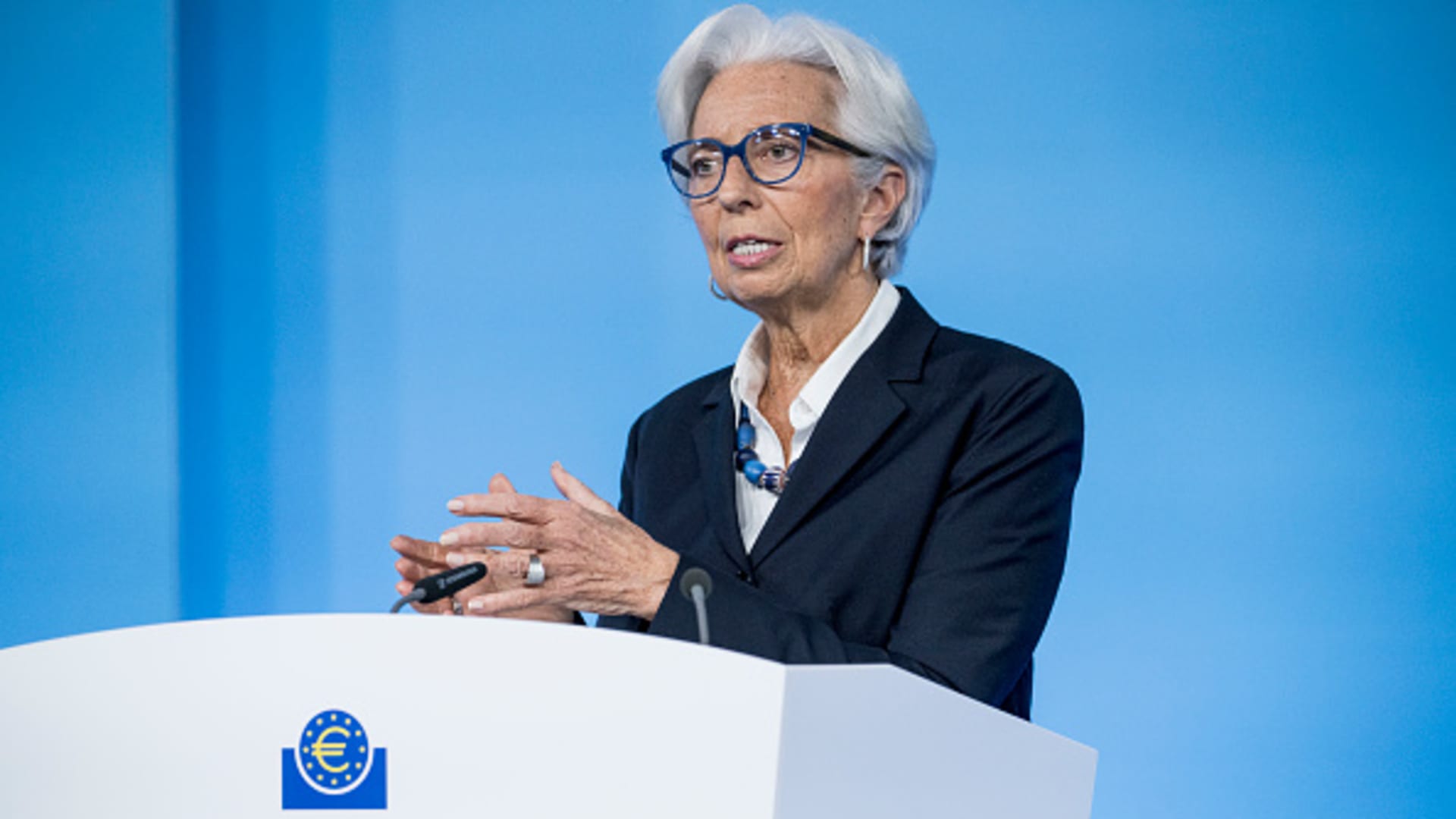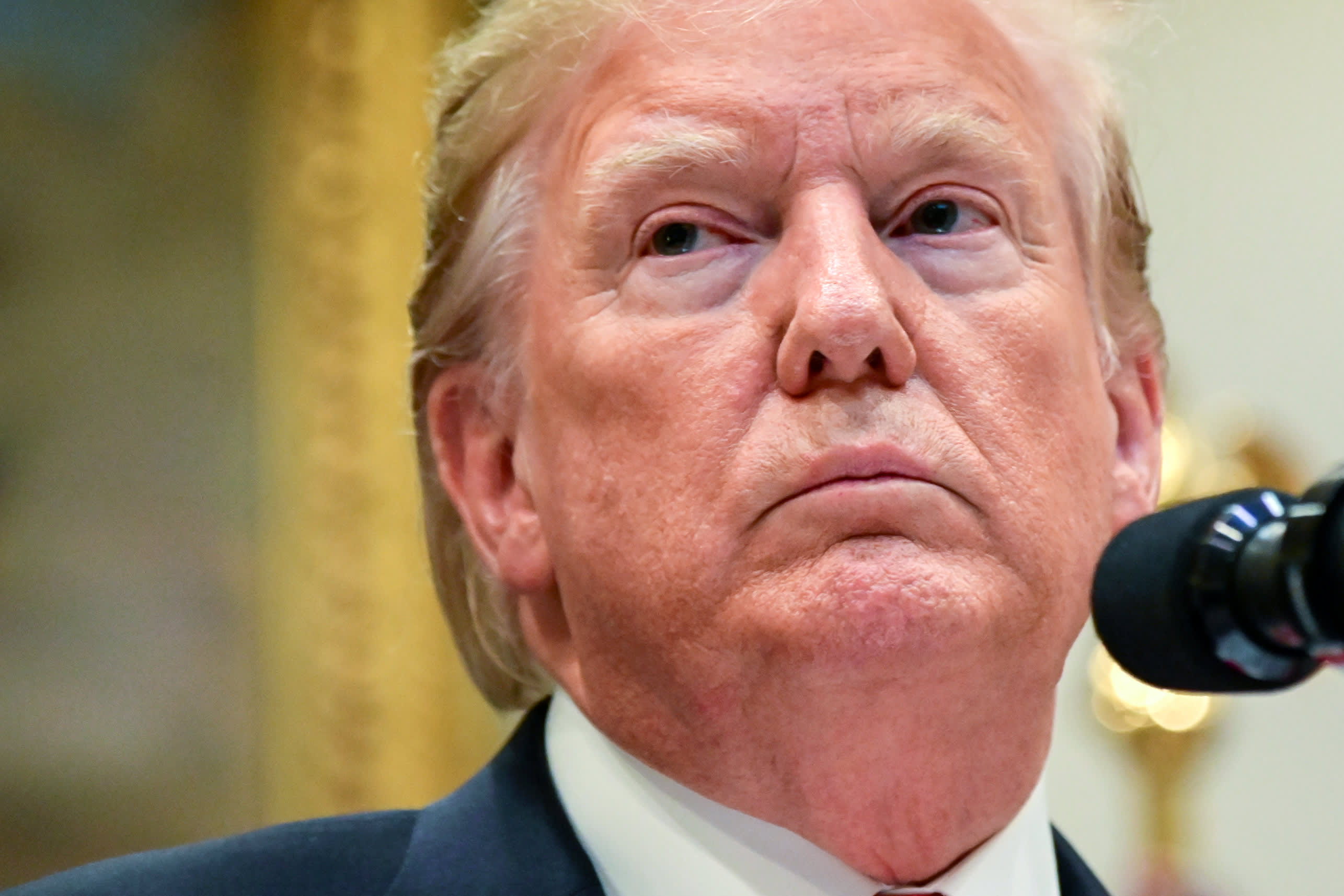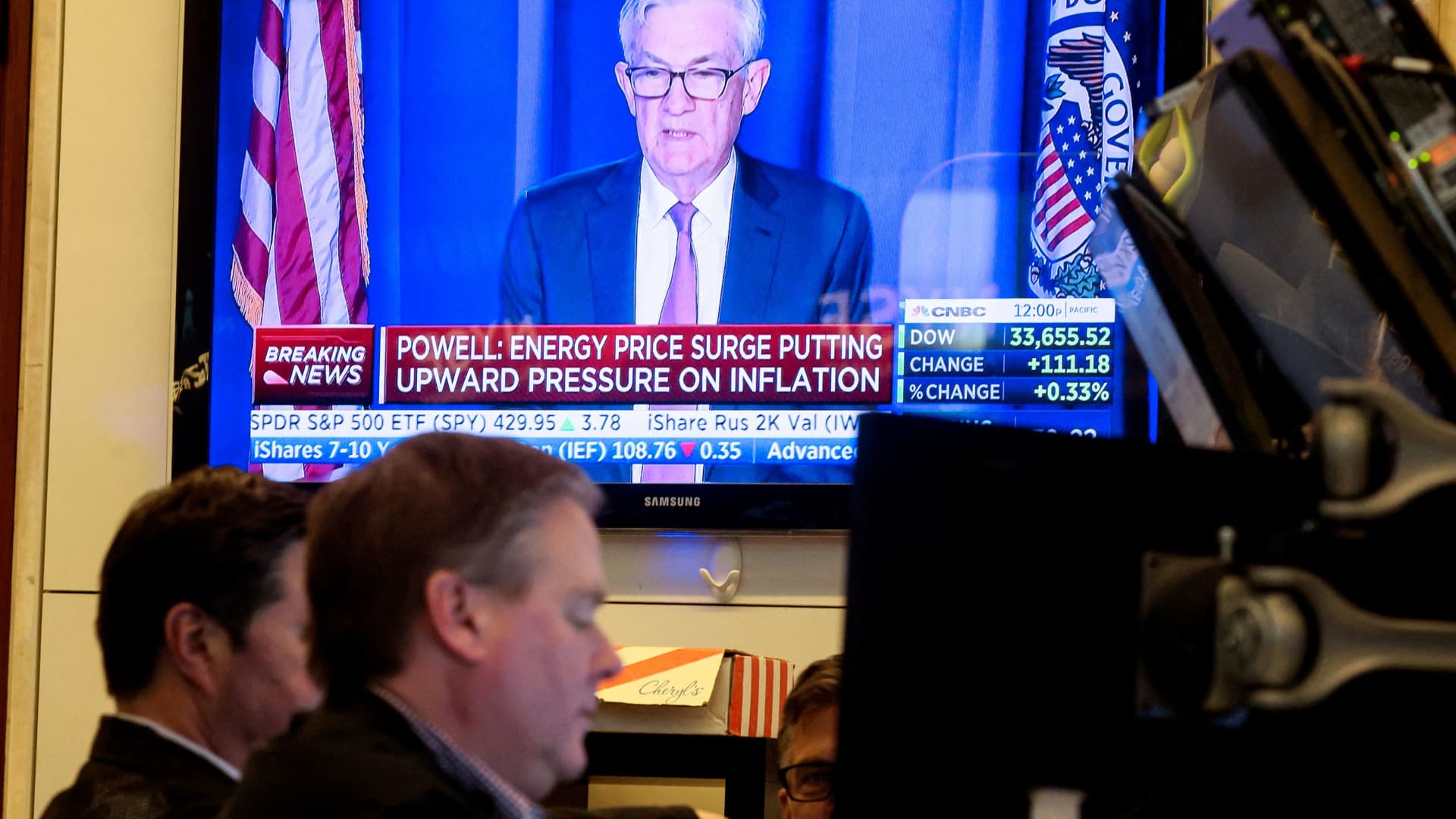India kicks off the world's largest elections this week. Here’s what you need to know
Indians head to the polls on Friday in what will be the world's largest democratic election, as close to one billion voters pick their next government.
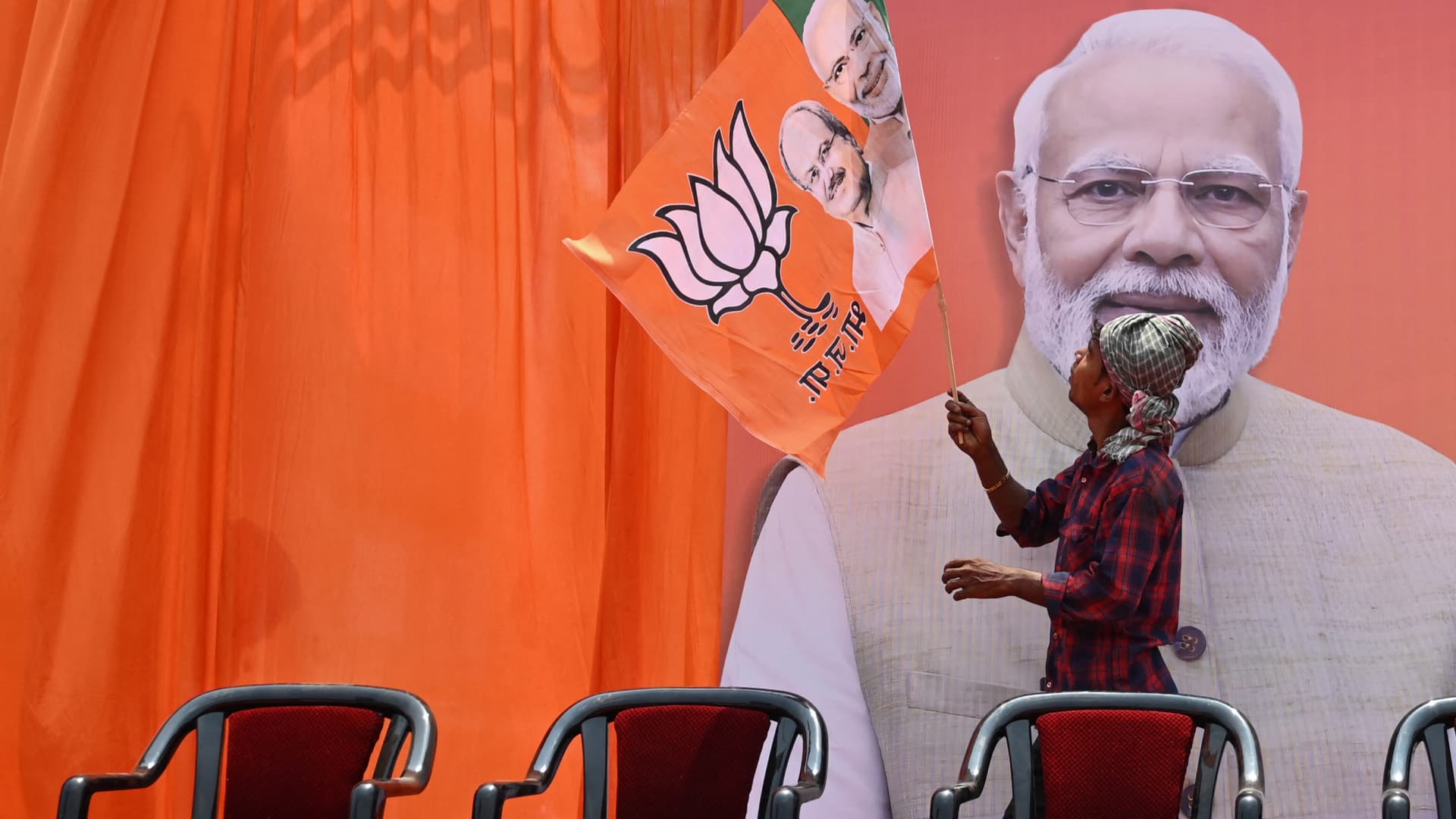
A worker fixes a flag of the ruling Bharatiya Janata Party on a hoarding of their leader and India's Prime Minister Narendra Modi on April 15, 2024.
Idrees Mohammed | Afp | Getty Images
Indians head to the polls on Friday in what will be the world's largest democratic election, as close to one billion voters pick their next government and decide whether to hand Prime Minister Narendra Modi a third term in office.
The 2024 general elections will pan out in seven phases over the next six weeks, starting April 19.
Voters will decide who fills the seats of the Lok Sabha, the lower house of India's parliament, for the next five years. The Lok Sabha is the more powerful of the two houses of Parliament.
Whichever party or coalition that wins the majority will lead the government and pick the next prime minister. Analysts widely expect Modi's Hindu-nationalist Bharatiya Janata Party to score another landslide victory in the upcoming elections.
Here's why India's elections matter.
India's meteoric rise
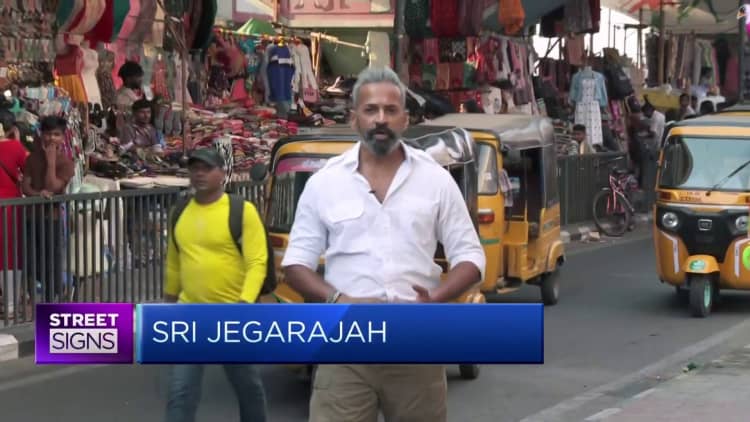
That's not all.
India's stock market overtook Hong Kong's in December to become the fourth largest in the world, and is now valued at over $4 trillion.
Analysts expect Modi to win a third consecutive five-year term, further driving India's growth trajectory.
"The growth story is not done. But private and foreign investments have been very subdued and exports have also declined," Suyash Rai, deputy director and fellow at Carnegie India told CNBC. "So I feel that there is some weakness building up."
U.S. President Joe Biden and India's Prime Minister Narendra Modi at an arrival ceremony during a state visit on the South Lawn of the White House in Washington on June 22, 2023.
Bloomberg | Bloomberg | Getty Images
India has forged deeper ties with the West in the past year, and Modi's reelection could further strengthen U.S.-India relations, said Chietigj Bajpaee, senior research fellow for South Asia at Chatham House.
He said India is seen as a "bulwark against China" as the Biden administration continues to encourage U.S. companies to move electronics and technology manufacturing operations out of China into friendlier countries, like India.
"If there are two countries where there's the highest degree of consensus, it's China as a long-term strategic rival and India as a long-term strategic partner. That won't change," Bajpaee said.
Key contenders
There will be 543 contested seats in the lower house, and the party or coalition that wins at least 272 votes will form the government.
There two main contenders are: the BJP-led coalition known as the National Democratic Alliance (NDA), and the opposition bloc known as the Indian National Developmental Inclusive Alliance (INDIA).
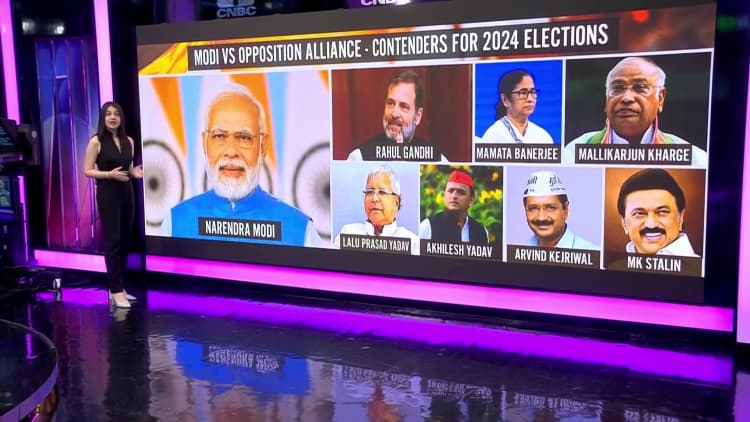
The opposition coalition was formed last year when more than 40 opposition parties joined forces. It is led by the Indian National Congress whose leading figure is Rahul Gandhi — the son of Rajiv Gandhi, a grandson of Indira Gandhi, and a great grandson of Jawaharlal Nehru, who all served as prime ministers of India.
The Congress, which ruled the country for most of its post-Independence era, suffered a stinging defeat in the elections in 2014 and 2019.
In 2019, the BJP secured a total of 303 seats. Together with the BJP-led National Democratic Alliance, 352 seats were clinched. The opposition Indian National Congress won 52 seats that year.
A worker fixes flags of the ruling Bharatiya Janata Party displayed on a hoarding prior in Raipur on April 15, 2024 ahead of the country's upcoming general elections.
Idrees Mohammed | Afp | Getty Images
This time, the BJP's coalition bloc is widely expected to once again trump the opposition parties and win a historic third term win thanks to the political stability in the last decade, analysts said.
"Policy consistency and political stability are connected to each other deeply. So the expectation will be that the government that comes in will be able to maintain that," said Amitendu Palit, senior research fellow at the Institute of South Asian Studies, National University of Singapore.
"This will be a significant year for India, and I have a feeling that whoever be the government in India, the foreign policy direction and the economic policy direction are going to remain broadly unchanged," he told CNBC.
Modi reportedly said in March that he was confident the BJP and NDA will secure a total of 400 seats.
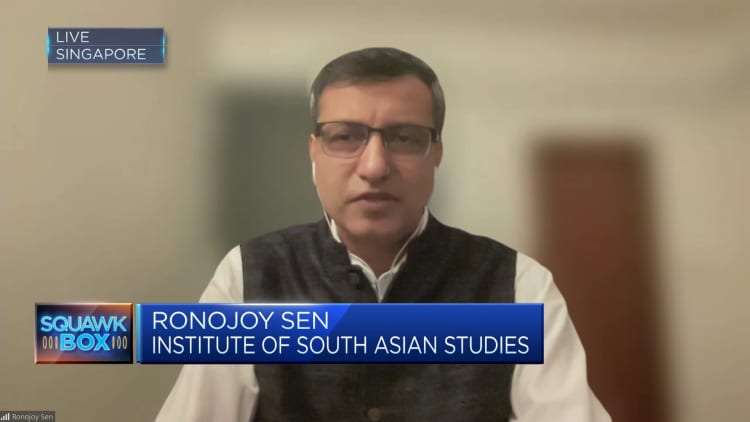
Chatham's Bajpaee said it's a "foregone conclusion" that Modi's BJP will take the reins again this year, but "what's unclear is the scale of the victory."
"You don't need the BJP to lose for the opposition to win. All they need to do is prove the Modi brand has weakened if they don't perform as well as last time," he highlighted.
Voters' concerns
According to a survey conducted by the Centre for the Study of Developing Societies, unemployment was the top concern for 27% of the 10,000 surveyed.
More than half (62%) of those surveyed also said it had become more difficult to find a job in the last five years during Modi's second-term.
"You still have a large proportion of the population which is impoverished, so there are large disparities across the country," Bajpaee said.
Rising costs is the second biggest concern, with 23% of voters surveyed saying it was their primary concern. About 35% of respondents said their quality of life has declined in the last five years.
About 13% said their biggest worry was the country's development, 8% said corruption was their top concern.
Election in numbers
This will be India's biggest election yet, with some 968 million people registered to vote — of which 48% will be women voters, according to the Council of Foreign Relations. There will also be 18 million first-time voters, according to Reuters.
Given the sheer number of voters, the seven-phase election will last 44 days, from April 19 to June 1, according to the Election Commission of India.
A poll official marks an Electronic Voting Machine (EVM) at a distribution center in Coimbatore on April 11, 2024.
R.satish Babu | Afp | Getty Images
The six-week election is expected to cost more than the 2020 U.S. presidential election where $14.4 billion was spent, according to Washington-based research firm OpenSecrets.
Data from the company showed that India spent $8.6 billion in the 2019 general elections, $2.1 billion more than the 2016 U.S. presidential race.
Results will be released on June 4.
Electoral rules have stated that since there must be a polling station within two kilometers of every registered voter, there will be about a 1.05 million polling stations, 5.5 million electronic voting machines, and 15 million staff and security personnel overseeing the election, data from the election commission showed.
— CNBC's Joanna Tan contributed to this report.

Get a weekly roundup of news from India in your inbox every Thursday.
Subscribe now

 ShanonG
ShanonG 








